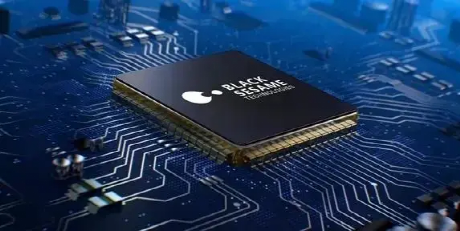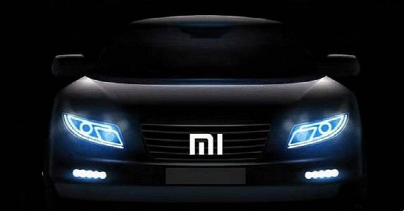Introduction
On September 22, Black Sesame Technologies announced the completion of billions of dollars of strategic and Series C financing this year. The strategic round was invested by Xiaomi Changjiang Industrial Fund, Fusi Automotive, and other leading domestic enterprises. The Series C financing was led by Xiaomi Changjiang Industrial Fund, and followed by Wentai Investment, Wuyuefeng Capital, Skychee Capital, Yuanhe Puhua, Lenovo Capital, Linyin Capital, and China Automotive Semiconductor Industry Innovation Strategic Alliance. This is Xiaomi’s first investment in the upstream core chip sector of the automotive industry after announcing its entry into car-making, fully demonstrating Xiaomi’s confidence in Black Sesame Technologies.
Black Sesame Ranks Among Chip Unicorn
After the completion of the two rounds of financing, the valuation of Black Sesame Technologies is close to 2 billion US dollars. Currently, the company is pushing forward a new round of C+ financing.
Black Sesame is not unfamiliar to practitioners in the automotive chip field. Founded five years ago, Black Sesame Technologies has a relatively complete technical product system through its deep involvement in artificial intelligence, automotive-grade chips, and autonomous driving. Currently, Black Sesame’s products include four Huashan series autonomous driving chips, a high-performance FAD autonomous driving computing platform, a set of intelligent driving perception algorithms, and the “Mountain and Sea” AI development platform and toolchain that provides support for customers. This combination of hardware and software can help automotive products achieve intelligent cockpit, intelligent interaction inside and outside the car, and various levels of autonomous driving functions.

So far, Black Sesame Technologies has released multiple chips, including Huashan A500, Huashan A1000, and Huashan A1000 Pro, etc. The products have basically covered autonomous driving scenes from Level 2 to Level 4. Among them, Huashan A1000 Pro, which successfully achieved chip production this year, has a single-chip INT4 computing power of 196TOPS and INT8 computing power of 106TOPS, which can support advanced-level autonomous driving functions and seamlessly connect from parking, city streets to highway scenes. It’s no wonder that Xiaomi is so optimistic about this chip manufacturer, given such rapid development.
 Currently, Black Sesame Intelligent Tech has established a huge ecosystem in the field of autonomous driving, with a series of business collaborations on L2/3 level ADAS and autonomous driving perception system solutions with companies such as FAW, Bosch, SAIC, Dongfeng Yueda, Zhongke Chuangda, Asia-Pacific, Baolong Group, Junlian Zhixing, Sutoria, Novel-Tech, Lianyou Technologies, etc. Partnering with Xiaomi has raised the expectation for Black Sesame even higher. With a boost from the Changjiang Industry Fund under Xiaomi, it is possible that Xiaomi aims to get ahead in the game of autonomous driving chip supply chain. With Xiaoimi’s considerable investment, Black Sesame’s technical strength and future development prospects should not be underestimated. After this round of funding, Black Sesame’s valuation has already reached nearly $2 billion USD and has officially become a super unicorn in the field of chip technology.
Currently, Black Sesame Intelligent Tech has established a huge ecosystem in the field of autonomous driving, with a series of business collaborations on L2/3 level ADAS and autonomous driving perception system solutions with companies such as FAW, Bosch, SAIC, Dongfeng Yueda, Zhongke Chuangda, Asia-Pacific, Baolong Group, Junlian Zhixing, Sutoria, Novel-Tech, Lianyou Technologies, etc. Partnering with Xiaomi has raised the expectation for Black Sesame even higher. With a boost from the Changjiang Industry Fund under Xiaomi, it is possible that Xiaomi aims to get ahead in the game of autonomous driving chip supply chain. With Xiaoimi’s considerable investment, Black Sesame’s technical strength and future development prospects should not be underestimated. After this round of funding, Black Sesame’s valuation has already reached nearly $2 billion USD and has officially become a super unicorn in the field of chip technology.
Xiaomi’s first investment in autonomous driving chip technology
This round of investment is Xiaomi’s first investment in the upstream core chip industry since announcing their entrance into the car manufacturing industry. Xiaomi’s Changjiang Industry Fund has participated in both of Black Sesame Intelligent Tech’s latest two rounds of financing, demonstrating Xiaomi’s bullish stance on Black Sesame.
Xiaomi Automotive has announced its own development of autonomous driving systems and is pushing towards L4 level autonomous driving functionality in the future. Demand for autonomous driving chips will inevitably be high. Since officially entering the car manufacturing industry in late March of this year, Xiaomi has been actively building car manufacturing teams over the past few months, including the acquisition of autonomous driving company DeepMotion, and investing in a multitude of enterprises such as Zongmu Technology, Hesai Technology, GeoPartner, Youtai Microelectronics, and more, covering multiple areas such as autonomous driving perception, vehicle chip technology, and other fields. This investment in Black Sesame Intelligent Tech undoubtedly fills in a gap for Xiaomi Automotive in the autonomous driving decision-making layer. In the future, we may see Xiaomi Automotive develop an autonomous driving system based on Black Sesame Intelligent Tech’s chip technology platform.

Looking at the current trend in car manufacturing, chip shortages and computing limitations will be issues that hinder the growth of new car manufacturers for a long period of time. This requires the rise of domestic chip technology. In the era of “software-defined cars,” more and more software applications are running on hardware platforms, requiring a strong computing platform to support various intelligent driving functions and the continuous iteration of software. The semiconductor industry in China has been impacted by foreign sanctions in recent years, worsened by the pandemic. In this situation, it is imperative that domestic chip manufacturers step up to solve urgent issues in China’s automotive industry. The current chip shortage problem poses both a challenge and an opportunity for domestic manufacturers. The government is also vigorously promoting the localization of chip production. If manufacturers can take advantage of this opportunity to enter the market, they will surely usher in a wave of domestic chip production.
Xiaomi Automotive takes another step forward in car manufacturing.After officially announcing its plan to invest 10 billion yuan in car manufacturing for the next ten years on March 30th, 2021, Xiaomi has gradually begun its investment layout in the upstream and midstream of the car manufacturing field. Recently, it has been active in acquiring enterprises including automatic driving and vehicle parts suppliers, demonstrating its determination to make cars.
Overall, Xiaomi has been dormant for many years, gradually developing each small branch of the entire vehicle manufacturing field, then piecing together these well-developed branches to form a complete vehicle manufacturing process. By investing and acquiring weak areas within the field, it has integrated its original branch advantage and other advantages, forming a large competitive vehicle manufacturing layout in a short period of time. It must be said that Xiaomi’s car-making is not a spur-of-the-moment decision, but a planned and steady approach that has inspired industry expectations for its future car manufacturing performance.

This article is a translation by ChatGPT of a Chinese report from 42HOW. If you have any questions about it, please email bd@42how.com.
